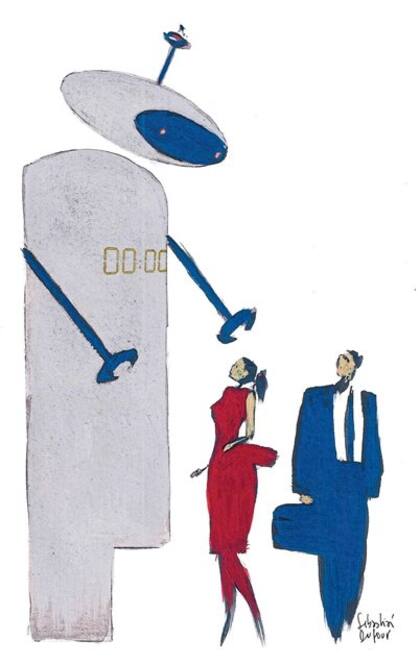
The G-20 and the future of work
MIAMI.- When president Donald Trump and the leaders of China, Russia, Germany and other leading economies of the world meet in Argentina for the G-20 summit on November 30, they will spend part of their time talking about a topic that will be crucial in the coming years: the future of work.
It is clear that although this will be the official theme of the G-20 summit, it will probably not be the one that generates the most headlines. World attention will be focused on the meeting between Trump and the Chinese president, Xi Jinping, and their efforts to avoid a commercial war between the United States and China.
But the G-20 summit will dedicate one of its four sessions to talk about the disruption that is coming in the global labor market. It is likely that tens of millions of jobs will be lost and that wages around the world will continue to be depressed, due to the growing use of robots, algorithms and artificial intelligence.
A study by the University of Oxford in 2013 predicted that 47 percent of the jobs in the United States are inrisk of disappearing over the next 10 years due to automation. Other World Bank studies estimated that the loss of jobs in emerging countries such as China and Mexico will be even greater, due to their dependence on manufacturing factories whose workers can easily be replaced by robots.

Not only factory workers, but also restaurant waiters, hotel janitors, bankers, accountants, doctors, lawyers, journalists and almost all other professionals are in risk of losing their jobs or seeing their salaries fall. Last week, the official Chinese news agency Xinhua announced the debut of the first robotic television news anchor. Unlike a human presenter, the robot has the advantage of working three shifts in a row and does not take vacations.
Earlier this year, hotel workers in Las Vegas threatened to go on strike, among other things, by the increasing use of robotic bartenders and bartenders. The robots are already bringing breakfast to the guest rooms and the robotic baristas prepare drinks for the casino customers.
Robots are now becoming cheaper and smarter. While in the past they were individual machines, they are now connected to each other through cloud computing and can learn from their respective successes and mistakes.
Argentine President Mauricio Macri, who will preside over the G-20 Summit, told me in a recent interview that he placed the future of work as the central theme of the G-20 because it is an issue that will affect all countries, regardless of their levels of development.
According to preliminary documents for the G-20 Summit, although technology will create new jobs, there will be an "impact on inequality within and among countries." Low-skilled workers will have a harder time reinventing themselves as data analysts than engineers or other highly skilled workers.
The preliminary documents of the summit propose, among other things, that countries facilitate independent workers to bring their social benefits from one job to another, and even from one country to another. As more and more people work in independent jobs, the priority should be to protect people, rather than jobs, say the drafters of the document.
In addition, the preliminary documents of the summit say that "countries must also ensure that there are adequate taxes to the digital economy." Several European countries say that, as electronic commerce and the digital economy are increasingly dominant, there should be a tax on sales of digital goods and services.
The United States, the headquarters of the main technology companies, has traditionally opposed this idea. No matter what decisions are made on these issues, it is time for world leaders to begin addressing them. The technological acceleration is already eliminating many jobs and depressing the wages of others. Even if the G20 meeting does nothing more than put this issue at the center of the world political agenda, it will be a good start.
@oppenheimera
 1
1- 2
Video | Así fue el atropello masivo en un mercado navideño en Alemania
 3
3El Ejército israelí informó que un proyectil lanzado desde Yemen impactó cerca de Tel Aviv: al menos 20 heridos
 4
4Las declaraciones de Pepe Mujica y su mujer sobre la dictadura que provocaron polémica y llegaron hasta la Justicia en Uruguay



